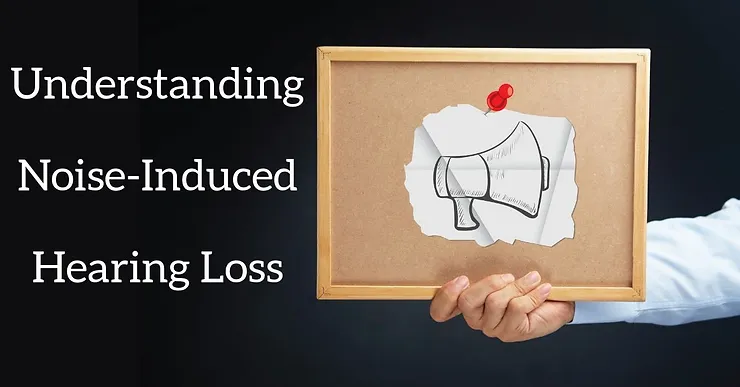
Noise is something we can’t really escape. We are confronted with loud sounds all the time, from the screeching of the train tracks as it enters a station to the household appliances you use everyday. Many sounds aren’t harmful but some can cause serious damage, if you don’t limit your exposure to them.
What is noise-induced hearing loss?
According to the National Institute on Deafness and Other Communication Disorders (NIDCD), Noise-induced hearing loss (NIHL) is a type of sensorineural hearing either from “a one-time exposure to an intense “impulse” sound, such as an explosion, or by continuous exposure to loud sounds over an extended period of time”. This type of hearing loss doesn’t just affect the older adults, but also children and teenagers.
How sound can damage your ears
Sound is measured in decibels (dB). If a sound is 70 dB, even after lengthy exposure it is not going to cause hearing loss. But prolonged sound exposure at or above 85 dB may lead to hearing loss, and the louder the sound the less time you may be exposed to it before you compromise your hearing.
Loud noises can damage the sensitive hair cells in the cochlea. The breakdown in these hair cell means the brain is unable to receive the correct sound signals to process, which causes the hearing loss. What’s more, these hair cells do not regenerate once they die. The damage is permanent.
Signs of noise-induced hearing loss
You can begin losing your hearing slowly when you are subjected to loud noise over a lengthy period of time. Because noise exposure harm is generally gradual, you may not notice it, or you may disregard hearing loss signs until they become more noticeable.
Sounds can get muffled over time, and you may find it hard to understand other individuals when they speak, or find yourself watching TV at a much higher volume that your family and friends are used to.
Where are we likely to encounter dangerous levels of noise?
Focus on NIHL and its harmful impacts was originally concentrated on the workplace environment, and work regulations were implemented to prevent employees from harming their hearing in traditionally loud industries. Years later, the success of this laws have transferred the noise issue to to how we spend our leisure time. Now the most hazardous sources of noise are in your home and connected to leisure activities in which you participate.
If you’re at the shooting range and you don’t have hearing protection when using firearms, you can harm your hearing because firearms can get as loud as 150 db. Other recreational activities that are loud enough to damage your hearing include water sports, practising an instrument and motorcycling. Also, beware appliances such as such leaf blowers, power tools and lawnmowers as they can get as loud as 100-110 db.
How to protect yourself from noise
Be aware of damaging sounds
In order to ensure that we do not accidentally expose ourselves to hazardous noise levels, it is essential to pay attention to the noise levels that we encounter everyday –those that do not necessarily cause pain to our ears.
The best way to do this is to install a free smartphone app which monitors noise levels around you. As a rule of thumb, any sound louder than 85dB is damaging to your ears with enough exposure. When you enter an area with damaging levels of noise, use ear protection.
Use the 60/60 rule when using earbuds
Earbuds can be as noisy as a live concert as earbuds are usually placed inside the ear canal, in close proximity to to the eardrums. When watching television or listening to music while using earbuds, ensure you listen for a maximum of a 60 minutes at a time at 60% of the maximum volume, then take a listening break. This is recommended by hearing experts as a healthy way to use earphones.
Consider noise cancelling earphones
Individuals tend to switch up the volume when using earbuds because they are inadequate for blocking out environmental noise.
To reduce your exposure to noise, invest in noise-canceling headphones. These make it easier for you to consume content at lower sound levels as they are effective at blocking external noise. There are also hybrid earplug earphones that simultaneously block sound and play your favorite music. These also reduce the need to crank the volume up on your smartphone, but rather than ‘cancelling’ the sound they work by reducing the amount of sound that enters your ear.
Clear Hearing and Audiology
We offer custom fit earplugs, which can be a great solution to block out unwanted noise and protect the ears. And you’re concerned you might have noise-induced hearing loss, it’s important to take a hearing test as soon as possible. Contact us for a consultation.
